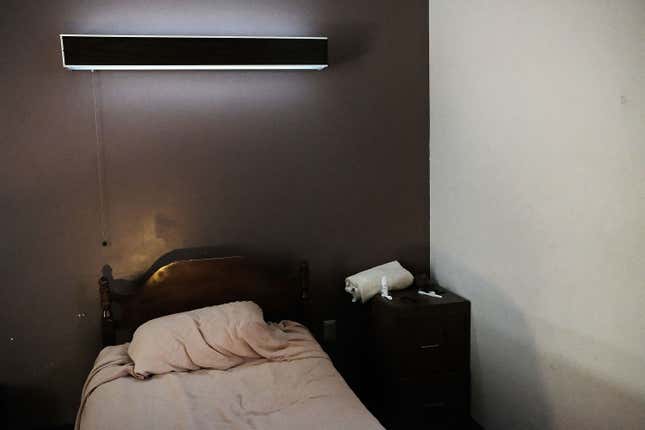What It's Like to Cross Louisiana's Coronavirus Checkpoints for an Abortion
Latest

A lot happened between March 6th, when Sam traveled 200 miles to get an abortion, and April 3rd, when she crossed four states for her follow-up. Last weekend, she sent me a photograph taken with her phone of a hand-painted sign outside of the American Family Planning Clinic in Pensacola, Florida: Bigger than the typical warnings about baby-killing and the photographs of bloody fetuses, it read in all caps: HIGH CORONAVIRUS RISK ZONE. “Every time the door of the clinic opened you could hear them yelling,” Sam says. The protestors “were rowdier that day.”
Almost six weeks ago, when she decided to cross state lines for a medical abortion, the decision was an obvious one. There is currently one clinic authorized to perform the procedure in the city where she lives. In Louisiana, “informed consent” laws mean women who want an abortion are required to read pamphlets about fetal development and wait 24 hours between when they have an appointment and when they can receive care. “I had a couple different friends here who told me they had abortions in New Orleans,” she says. “Most of their stories were horrific.”
When she decided to cross state lines for a medical abortion, the decision was an obvious one
Sam didn’t want counseling about her options; she wanted medication that would terminate her pregnancy. “I was already having a hard time talking to my people, I had a lot of head stuff going on,” she says. Her family wouldn’t approve, which is why Sam asked her full name not be printed. Recently, “my aunt called me and told me she had a dream I was pregnant,” she told me. Rather than run through a series of appointments and look at renderings of her fetus in Louisiana, Sam Googled “abortion clinics in the South” and called one of the first she found, which happened to be the Florida clinic where abortion doctor John Britton was killed in 1994, and which a homeless man firebombed in 2012.
“Hey, is this a thing where I can just come in?” Sam asked. Yes, but “expect to be here all day,” an administrator warned. Sam and her partner made “a little abortion getaway out of it.” They drove the three-and-a-half hours from New Orleans to Pensacola and booked a hotel on a nearby stretch of scenic route in Nevada Beach. The appointment was for early afternoon but the doctor’s flight didn’t get in until 4:30PM. Sam felt fine afterward, if a little tired. Her partner, not realizing she couldn’t drink, had purchased her two bottles of Malört, the bitter liquor that reminded her of home. It was her first abortion. The beach was chillier than they’d expected. Sam visited some garden stores and the Crocs outlet and stared wistfully at the bottles of booze. She slept a lot. Then they went home.
-

-

-

-

-

-

-

-

-

-

-

-

-

-

-

-

-

-

-

-

-

-

-

-

-

-

-

-

-

-

-

-

-

-

-

-

-

-

-

-








































